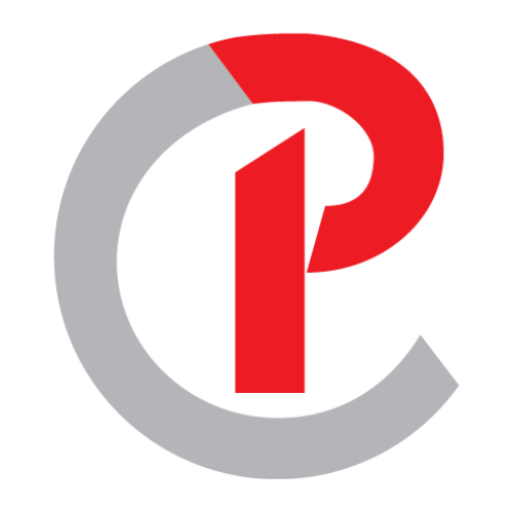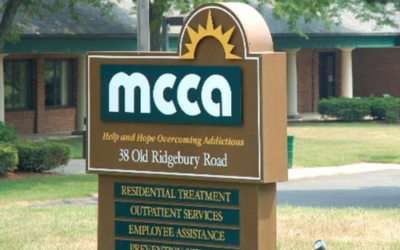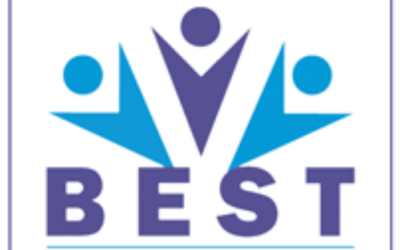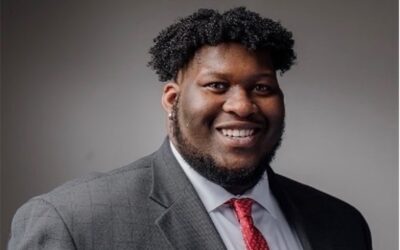
The Prevention Training and Technical Assistance Service Center (TTASC) likes to take the time to spotlight the fantastic prevention professionals within Connecticut and discuss their journey and successes. In the Prevention Professional Spotlight, we had the chance to interview Mary Ollennu, Windham Pride Coalition Prevention Coordinator, Town of Windham.
What does prevention mean to you?
Prevention is engaging and incorporating people from all experiences and walks of life in creating an enriching environment for folks in the community, especially youth.
How did you get interested in the prevention field?
This position is my first in the field of substance use prevention. Still, I’ve always done community engagement and outreach. I sought this position because I felt the skills I gained while doing community work in Ghana were easily transferable to substance use prevention work in Windham.
What has been your career journey?
It started in college, where I initially wanted a journalism degree. After telling my father, who experienced a politically tumultuous time in the 70s and 80s during which journalists were killed and arrested, he encouraged me to pursue law. I did so initially, yet after receiving my bachelor’s degree, I applied for law school and was never accepted into a law program. Fortunately, around that time, I developed a friendship with an African-American lecturer through whom I started working at a very well-connected non-profit. In fact, the current First Lady of Ghana is the founder of that non-profit.
Working at this non-profit allowed me to travel throughout Ghana, doing a lot of outreach programs and research. I actually completed my year of Ghanaian national service (compulsory one-year service required for all citizens to develop the potential of young people and create opportunities for them to deliver quality services to the disadvantaged) with this non-profit. After this, I completed my master’s in developmental studies, through which I researched early childhood marriages in the northern region of Ghana and some of the reasons they happened. I eventually got funding from the US Embassy to stage a play on my research. At that time, I got a fellowship to come to New York, and now I’m here in Windham.
To summarize my career journey, I’ve done nonprofit work, a lot of community engagement in the arts, and a bit of health-related work with pregnant women, teenage mothers, and babies, where the focus was on malaria. With this work, we did a lot of work and research programs with several community health posts in some of the remotest parts of Ghana. With the prevention work I do in Windham, I can utilize all the community engagement, youth outreach, and activity-building skills I’ve picked up along the way.
What do you consider your area of specialty (e.g., priority substance, populations, coalition work, training)?
I think one of my strongest areas would be community engagement. I feel like prevention’s premise is engaging with people and raising their awareness so they can make informed decisions. And I’m happy to say that in my experience working with the Windham community, the people have been receptive to the coalition’s messages. The people are curious, engaged, and willing to ask questions.
What do you like most about your job?
For me, it’s the connections. I love to grow and meet people, and make new connections. I’ve been so lucky because I’ve had two great bosses. My current boss and all the staff at Human Services are very supportive, friendly, helpful, and always willing to sit and talk with you.
Another thing I love about doing this work is the potential to create change in people. I always say that if you’re able to create change in one person, even if it is just one teenager, then it’s possibly an entire generation who’s going to be affected by that one person who decided that I’m not going to do this, or I have done it, but, I don’t want to do it anymore. It gives me the greatest satisfaction.
What advice would you give someone entering the prevention field?
To be open to new ideas and knowledge. I think you can’t be set in your ways in this field, and you can’t say you know it all. Even if you’ve been in prevention for 10+ years, there’s always something new to learn. Also, be open and accept that sometimes, things will not go your way. Accept that it’s a journey; there will be failures and successes, but it’s a learning process.
Describe a recent prevention accomplishment in Connecticut (statewide or local) that caught your attention.
The New Britain Youth Prevention Council, which Tyshaunda Wiley coordinates, has a great website and programming. Their website is full of color and has a lot of links for young people. I love their Bee Responsible Initiative and the Summer Palooza they run, and I plan to borrow a lot of their ideas. I love the council and Tyshaunda Wiley’s work in New Britain.
What are some ways that you practice your own self-care and work-life balance?
I keep a to-do list to get through work tasks. I also take time to relax during the day, and fortunately, Windham’s Jillson Square is nearby, so sometimes I go out to walk about and decompress or chill a bit.
Was there anything special your coalition did for National Prevention Week?
We extended our programming offerings from just National Prevention Week to the entire month of May. We worked with Eastern Connecticut State University (EastCONN), Windham High, Windham Tech, and EastCONN’s Art at the Capitol Theatre (ACT) Magnet School in Windham to run a series of events throughout the month.
-
At EastCONN, we ran activities on their campus during the school’s Prevention Day. It was a great way to reach the 18-24 year old population. We reached 150 students, ran a survey, shared information, and had giveaways of Dunkin gift cards.
-
At the high schools, we provided presentations, answered questions, facilitated roleplays, and played a wheel of facts activity that promised gift cards for young people who responded to randomly selected questions correctly.
Learn more about Windham PRIDE at https://www.windhampride.org/



